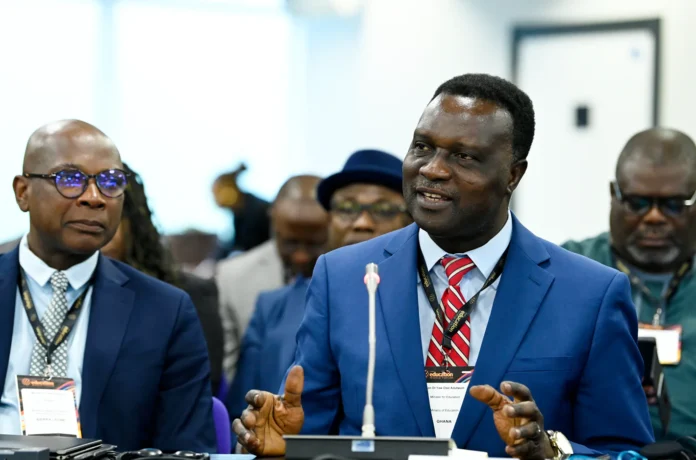Ghana’s Minister for Education Dr. Yaw Osei Adutwum has detailed comprehensive reforms to transform technical education as a driver of economic growth. The Minister was speaking at the just ended 2025 TVET Forum in Gaborone.
“TVET is no longer a path for the less academically inclined,” the Minister declared. “It has become our government’s top priority for industrialization and job creation. We’re building a system where technical skills mean dignity, opportunity, and national progress.”
The Minister highlighted Ghana’s establishment of three new Technical Universities as game-changers: *”These institutions in Digital Engineering, Agricultural Engineering and Applied Healthcare Sciences represent our commitment to skills training that meets 21st-century demands. From short courses to degree programs, we’re creating multiple pathways to employment.”*
Legislative reforms have been pivotal. “The Education Regulatory Bodies Act 2020 created CTVET to finally give TVET the structured governance it deserves,” the Minister explained. “Through Sector Skills Bodies, we’re ensuring industry directly shapes what we teach, so graduates walk into waiting jobs.”
The results speak for themselves – TVET enrollment skyrocketed from 42,000 in 2018 to 235,000 in 2024. “This growth proves young Ghanaians now see technical education as their ticket to prosperity,” the Minister noted.
A key focus is breaking gender barriers. “We’re telling our young women: the welding torch and engineering blueprint belong in your hands as much as any man’s,” the Minister emphasized. “And we’re equally encouraging men to enter fields like cosmetology where opportunities abound.”
The Minister concluded with a call to action: “Africa’s development hinges on getting TVET right. Ghana is ready to collaborate across borders to build technical education systems that lift our youth and transform our economies.”
The forum, hosted at Ba Isago University, brought together education leaders from across Africa to strategize on vocational training’s role in addressing unemployment and skills gaps.



